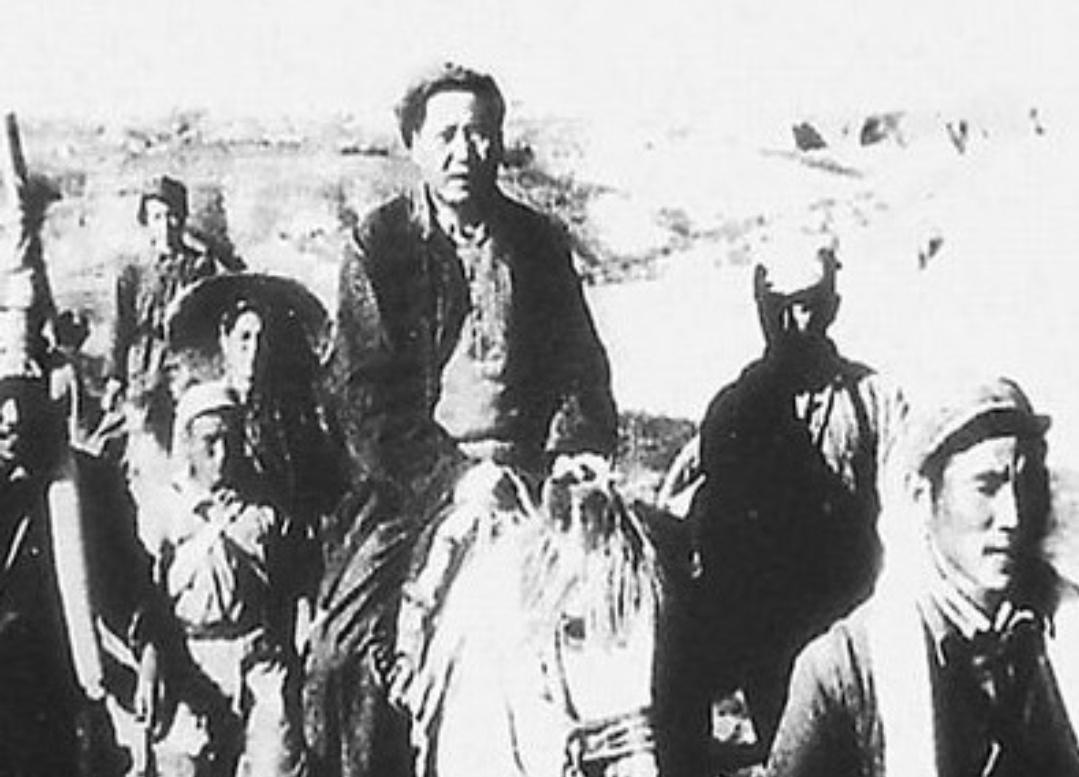There were two outstanding ancient geographers in China who were deeply praised by Mao Zedong, one was Xu Xiake of the Ming Dynasty, and the other was Li Daoyuan of the Northern Wei Dynasty, the author of the Commentary on the Water Classics.
In his speech at the Supreme State Council on January 28, 1958, Mao Zedong said: The Jiangsu man of the Ming Dynasty, who wrote "Xu Xiake's Travels", was not official, and he ran so many roads. It was found that the Jinsha River is the source of the Yangtze River.
"The Mountain Guides the River", which is said in the scriptures, he says that this is wrong, he says that it is "the Jinsha River Guides the River".
At the same time, I see that the author of "Notes on the Water Classics" is also a remarkable person. How could he write so well when he didn't run around? This is not only a scientific work, but also a literary work.

Why did Mao Zedong praise Xu Xiake and Li Daoyuan so much? In addition to their well-written articles, mainly because they have obtained a large number of things that are not in the books after personal travel and fieldwork, and have made new discoveries, dare to deny the conclusions that are already in the books, and put forward their own scientific assertions.
In particular, Xu Xiake, who traveled at the age of twenty-two, traveled in sixteen provinces and regions in the past thirty years, and with perseverance and perseverance, crossed thousands of mountains and rivers, overcame all kinds of difficulties and dangers, and made a lot of investigations and observations on the source of the motherland's mountains and rivers, topography, rock caves, animals and plants, and even folk customs and customs, leaving precious geographical information and knowledge to future generations.
His discovery that the Jinsha River is the source of the Yangtze River negates the conclusion of the Yugong "Minshan Guiding River" and overturns Chen Chen Xiangyin's old theory. Xu Xiake's practical spirit of pursuing truth won high praise from Mao Zedong.
At the Guangzhou conference in March 1961, when talking about doing the survey, Mao Zedong said that he would like to ride two big rivers (referring to the Yangtze river and the Yellow River) on horseback.
In 1964, Mao Zedong, who was in his prime, was really ready to realize this wish, riding up the Yellow River, to the source of the Yellow River, and conducting a systematic social and natural investigation on both sides of the Yellow River.
He also prepared to form a think tank to accompany him and recruit some scientists to participate, some engaged in astronomy, geography, geology, and history. Although this incident was not realized later, it shows that Mao Zedong's strong desire to pursue practical knowledge and read wordless books in the vast world is still there.
People know the moving story of Mao Zedong sending Mao Anying to Labor University. Mao Anying lived in the Soviet Union for a long time and was not familiar with the social situation in China. Shortly after his return to China, Mao Zedong asked him to work with a model worker and learn about agricultural production.
Later, he was sent to participate in the ReformAtional Reform, to learn the knowledge of class struggle, and to further understand the characteristics of Chinese society; after the founding of the People's Republic of China, he was allowed to participate in the War to Resist US Aggression and Aid Korea and accept the test of the war.
On the one hand, Mao Zedong encouraged Mao Anying to study hard, and on the other hand, he encouraged him to have extensive contact with society, to come into contact with reality, to get close to the masses, to undergo tempering, to learn practical knowledge, and to be a person who is beneficial to the people. This demand of Mao Zedong to Mao Anying is, in fact, the expectation and demand of the broad masses of young people.
As early as the forties, when Mao Zedong criticized subjectivism in the Party, he once said that there are two kinds of incomplete knowledge, one is ready-made book knowledge, and the other is partial and partial knowledge, both of which are one-sided, and only by combining the two with each other can we produce good and more complete knowledge.
It is also said that in opposing subjectivism, we must make the above two kinds of people develop in their own way, and we must unite the two kinds of people with each other.
Those who have book knowledge develop towards practice, and then they can not stop in books, and can they not make dogmatic mistakes.
People with work experience should learn from the theoretical aspects and read seriously. Mao Zedong's proposal to read both the book with words and the book without words means this meaning.
------------------